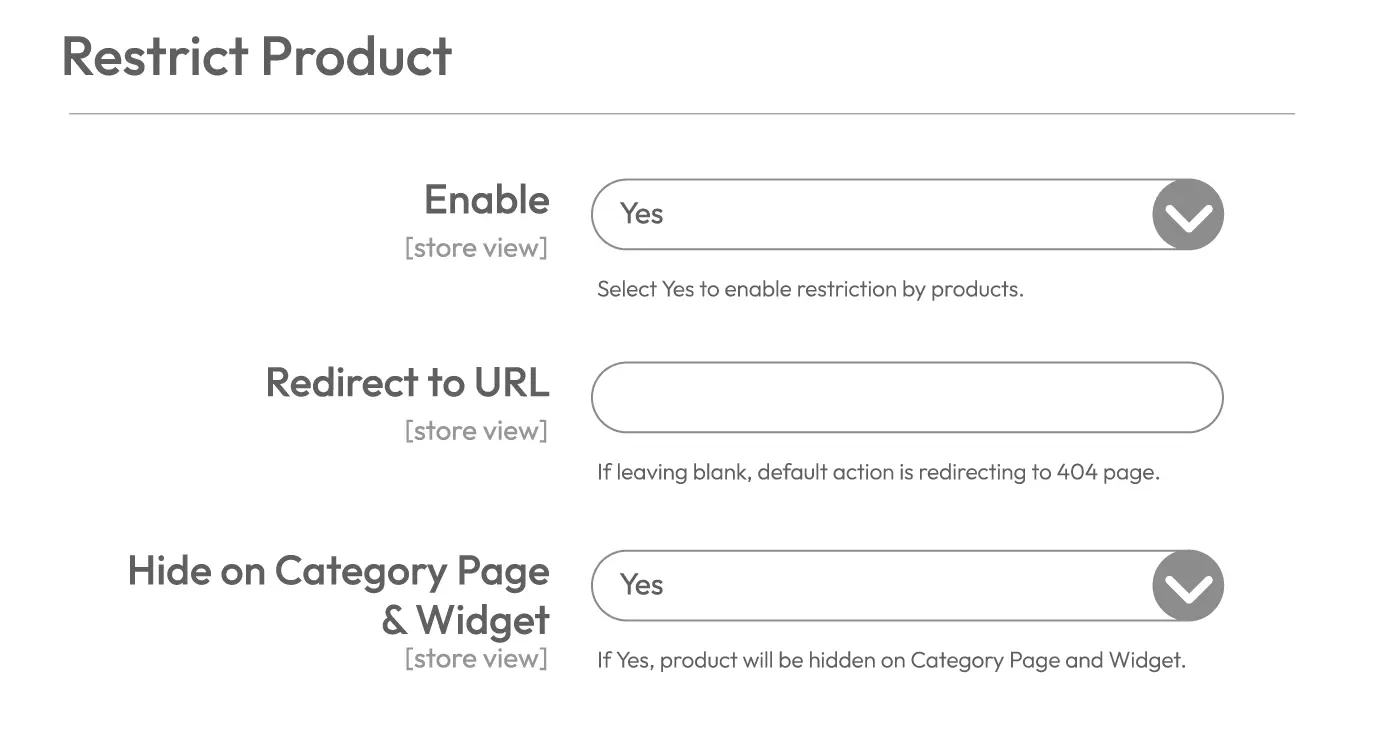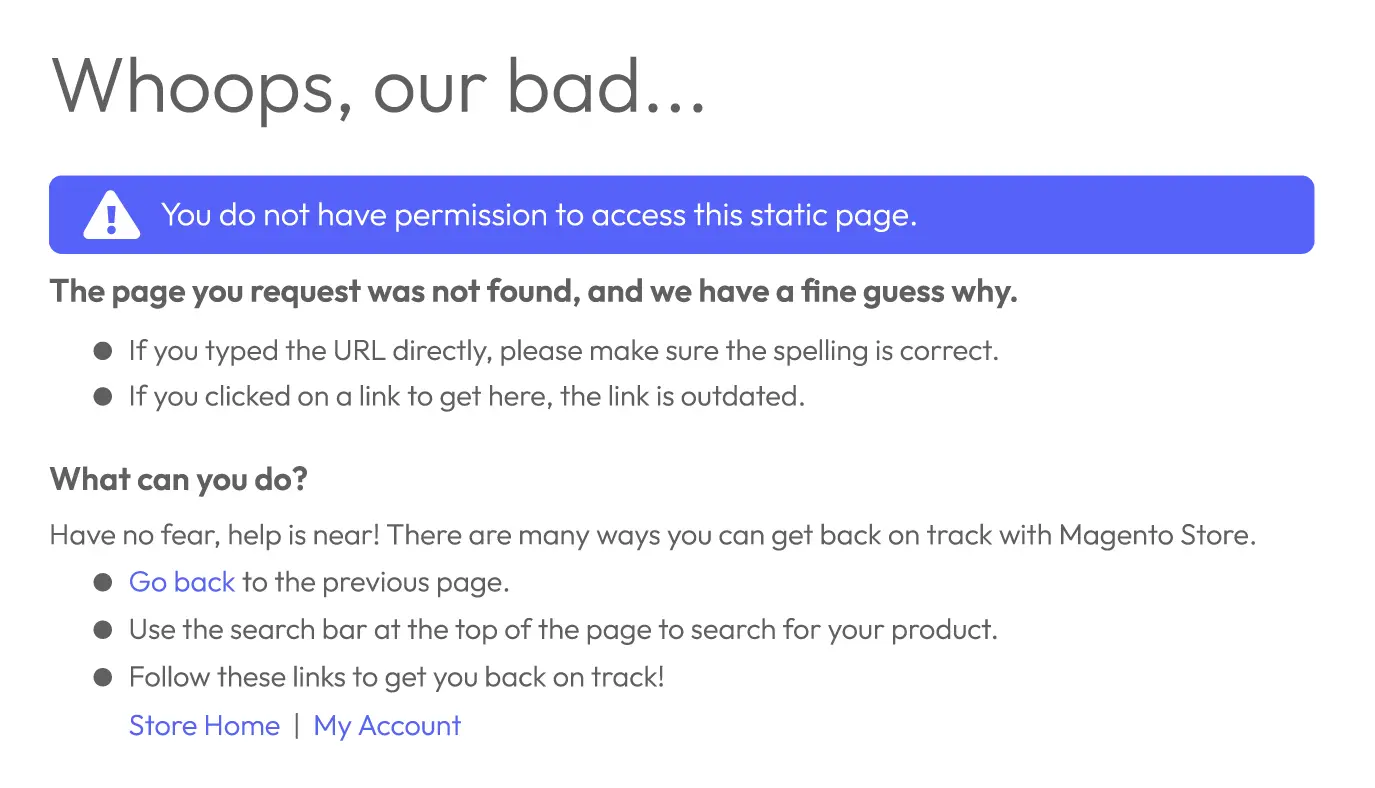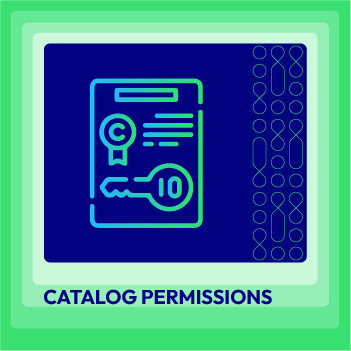How to secure data access by Catalog Permissions

Many pages and blocks are built in online stores to serve customers better. Sometimes, store owners want to hide specific categories, CMS pages, and blocks unnecessary to store visitors with their shopping demands and the store’s selling purpose. Thus, a tool to restrict some particular sites/blocks is undoubtedly essential for any online store.
In this blog, we are eager to introduce the Catalog Permissions Extension for Magento 2 to you. Together, let’s see why we need this amazing tool!
What is Catalog Permission and Who Should Use it?
As its name suggests, Catalog Permissions is a restriction tool limiting specific customer groups to certain categories, blocks, or pages. Admins can configure at the backend easily whom to be restricted and how long they will be.
Also, catalog permissions can apply for certain products which are not intended to be visible to all customers. This function is handy for e-stores with multiple sites and developing sites that are not ready for users. Hence, hiding these sites is necessary to implement store security and new ideas.

For example, if you are a merchant planning to build a reward program for customers. However, you want to test the program’s effectiveness for the first time launching, so you limit it to wholesalers only.
The result of the testing program will decide whether it should be continued and opened to other customer groups. If the idea is ineffective or even makes a loss to your store, stopping it is a better idea without many customers accessing it.
The Advantages of Catalog Permissions
Prioritize Specific Customer Groups
Stores may prioritize wholesalers over retailers since wholesalers order many products. They should have better benefits, such as discount prices, special products, or programs. Stores thus cannot let every customer access their special deals. In this case, catalog permission is an excellent choice to maintain the customer relationship flexibly.

Locate Target Customers to Suitable Programs
Giving access to relevant products or pages is the best way to locate customers to the appropriate program exclusively applied to them.
Let’s take Netflix - an online movie streamer - as a typical example. This website welcomes millions of visitors every day. Part of them are VIP subscribers who pay an amount to have an account to watch their favorite movies for a duration. However, there are also a lot of guest visitors or free-account customers. Hence, they must restrict a lot of pages where only VIP members can access to see the movie online. Catalog Permissions can definitely work for them in this task.
Give Access to Customers Based on Specific Situations
The out-of-stock status is not rare in online stores. And no buyers can be happy when their preferred item is not available at the time they really want it. To prevent this situation without any backup plan, store owners can restrict products to only a small number available to retail customers. This way, they’ll have time to prepare for restocking the products yet not worry about running out of stock.
Help Customers Focus on Relevant Data
Customers can view inappropriate products, categories, or page information when shopping on the store site since there is a ton of such information everywhere. Hence, being located at relevant sites helps them avoid being distracted and confused by many irrelevant factors.

Moreover, customers who are loyal wholesalers or important purchasers will feel respected and happier when they are given priority access to special products in specific cases such as discount periods, peak seasons, and so on.
As a result, when customers can secure access to relevant information, make the purchase quickly and save a lot of time, or gain special priority, they will get a better shopping experience. They would like to come back to the store next times.
Outstanding Features a Catalog Permission Extension Must Have
Set Visibility To Individual Products
Besides limiting the ability to access specific categories of several customer groups, this module also allows setting visibility to separated products.
To be more specific, with each product, admins can choose the customer groups who are not allowed to view the information of that product. In some particular situations, store owners will hide products from several clients.
Restrict The Visibility Of Categories By Groups

Mageplaza Catalog Permissions extension allows store admins to divide the visibility of categories between different groups of customers. For example, store owners can set category visibility so that only special customer groups are allowed to see the high-end and limited categories.
Besides, admins can show or hide some categories to particular groups like wholesalers, retailers, etc. Only by clicking and choosing actions, will admins set the restriction accurately.
Set Limit To CMS Pages/Blocks Access
You can use the customer group restriction function with CMS pages and CMS blocks.
For instance, with sensitive content such as Return & Refund Policy or Commission Policy, store owners usually want only to allow wholesalers to access and restrict guest visitors and even retailers.
Based on specific purposes, store owners can now give grant permission to groups of customers appropriately by setting restrictions for each CMS page/block.
Redirect Restricted Customer Groups

Every customer who is not allowed to access particular content will be redirected to other pages which have replaced information. Admin can configure the redirect URL easily from the backend. Below are some suggestions that admins can add to the URL:
- Redirect to the Homepage
- Redirect to the 404 page
- Redirect to a notification page about access permission URL Direction will keep customers on the store website or simply notify them about the catalog permission clearly.
Set Time For Restriction
Admins can easily set the time when the restriction is still valid. This feature would become helpful with stores that only want to limit access in several situations like special holidays, peak season, etc.
For instance, in the peak season, when the quantity of the products is not so large, the products will only be shown to logged-in customers.
Full Features of Catalog Permissions
For Store Admins
General Configuration
- Enable/ Disable the module
- Choose customer groups to hide data catalog/ data permissions
- Input IPs and IP ranges that are excluded from restrictions
Restrict Category
- Enable/ Disable category restriction by customer groups
- Input URL to redirect customers who are restricted to another page
- Hide/ Show category menu on the store frontend
Restrict Product
- Enable/ Disable product restriction by customer groups
- Input URL to redirect customers who are restricted to another page
- Hide/ Display restricted products on Category and Widget
Restrict Static Page/ Block
- Enable/ Disable static page/ block restriction by customer groups
- Input URL for the restricted static page
For Customers
- Access related content
- Be redirected to suitable information
- Be notified about catalog permissions
- Shopping without information confusion
Final words
Hopefully, after reading this post, you’ve had a deep knowledge of the Catalog Permission tool in Magento 2 stores. Especially, Catalog Permissions by Mageplaza is an excellent add-on helping to implement business strategies and bring a better shopping experience to customers.






![Top 20+ Must-have Shopify Apps for 2025 [Free & Paid] - Mageplaza](https://cdn2.mageplaza.com/media/blog/must-have-shopify-apps/top-must-have-shopify-apps.png)
![[2025 Updates] Top 10+ Upsell Apps for Shopify - Mageplaza](https://cdn2.mageplaza.com/media/blog/best-upsell-shopify-app/cover.png)